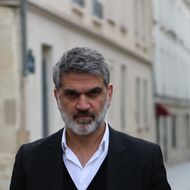Are Armenians doomed to live under the rhythm of a binary political world: anti-Nikol versus pro-Nikol? Are they doomed to endure the contemptuous kleptocracy of the “Old” and the cynical defeatism of the “New”? Are they condemned to choose between the plague and cholera? Are they doomed to choose between yesterday’s infamy and today’s irresponsibility? If we are to believe the pro- and anti-Nikol assertion, then yes, Armenians will have no alternative and the results of the latest municipal elections show this: no one really won, no force was able to claim victory, Armenians were the big losers at the polls. They lost because the participation rate was very low. They lost because no force clearly emerged from the vote. They lost because the word “hope” has disappeared from the political debate, however, both the Old and the New insist on leaving Armenians in uncertainty, confusion and with a bipolar choice. Nikol and his troops claim to see a “Future”, as if the latter could still bring happiness to Armenians in the wake of the 2020 military debacle. Those affiliated with the Robert-Serzh tandem portray an “Armenia” in which this aforementioned tandem would allow itself to encapsulate this beautiful country, as if the forces affiliated with them haven’t been endlessly pillaging it's resources for their own gains, for their regime, yet never in the service of the State or the general interest.
Everything exists to save the Armenian state, to provide it with a solid foundation and guarantee it a horizon of reassurance. The best way to do this is to go back to political basics, taking into account the strengths and disadvantages of the Armenian people. To achieve this, a roundabout rediscovery of Aram Manoukian, considered the founding father of the First Armenian Republic (1918-1920), seems the shortest and most relevant way to grasp the magnitude of the challenge.
What am I proposing? Quite simply an original thought which consists of putting in place a strategy, a way to overcome the constraints of the present to better anticipate the future and reduce potential sources of danger. The example drawn from the experience of Aram Manoukian bears witness to this. At the time when his party, the Armenian Revolutionary Federation (ARF), was divided into two camps over the Young Turk Revolution of 1908, between pro-alliance and anti-alliance with the Committee of Union and Progress (CUP), Aram Manoukian refused to participate in the debate and opted for a third way: Solidarity with the Turkish and Kurdish peoples and mass education across nationalities. Why? Because he knew that, if the danger ever arose, it is through the weaponization of the Kurdish and Turkish populations that the situation would deteriorate. Therefore, the best way to avoid this bleak scenario was to cooperate with both the Turks and the Kurds at the local level: solidarity across the peasant classes, education of the masses, etc. In this way, the Armenians would not only maintain their distance from the negotiations of power in Constantinople but would instead concentrate on building bridges of friendship and mutual support with the other local populations.
Aram Manoukian's path is one of bypassing constraints or overcoming problems in order to disable the source of difficulty by neutralizing the arm through which evil might act. More than a hundred years after the death of Aram Manoukian, how can we imagine the perpetuation of his legacy in Armenia today? Aram's strategy to get around or bypass is a two-step process. On the one hand, Aram's method consisted of multiplying acts of daring weighted in international relations, that is to say opening new avenues, envisaging reciprocal partnerships but adopting the “lice strategy” so dear to Simon Vratsian. What does that mean? Measured audacity requires considering all possible scenarios in the face of a particular diplomatic initiative. Any step taken predicates an option to come. Conceiving of a diplomatic scenario, based on a certain approach, entails a multiplicity of consequences and options, and the strategy of anticipation consists of reducing the amount of the unforeseen. Measured audacity is also about taking the lead and disarming any process whose finality you predetermine and whose outcome could be worse than audacity.
As for the "lice strategy", it is a matter of taking small steps, advancing gradually; advancing a pawn then taking the temperature of regional actors, then advancing another pawn, etc. In other words, letting the lice settle discreetly but surely on its prey without taking the risk of being destroyed. This consists in the implementation of levers of influence (technological, intercultural and intersocial) over time, in parallel with the implementation of a national orientation.
Take, for example, the case of the Nagorno-Karabakh conflict: Armenian authorities knew from March 2020 that in the event of an armed conflict in Artsakh, Armenians would find themselves not only facing Azerbaijan but also Turkey, even more than in 2016 during the Four Day April War. Instead of waiting for the conflict to become inevitable, Armenian diplomacy could have performed an act of measured audacity. Which one? They could have announced in the spring of 2020 that Armenia invites Turkey to join the co-chairs of the Minsk Group. There are several advantages here: Azerbaijan could not have said "no"; Armenia would have emerged as a positive and constructive power for the international community; Turkey would be recognized as having equal status with three major powers and permanent members of the UN Security Council. In return, Turkey would have made a strong gesture, such as reopening the border with Armenia; Turkish political demarches outside the Minsk Group would have been suppressed and that, within the Minsk Group, would have been annihilated by global diplomacy; the process which led to the war against the Armenians in September-November 2020 would have been frozen or even avoided entirely.
Finally, Biden's very likely victory in November 2020 would have canceled any plans for Turkey's military intervention alongside Baku given that all Turkish interventions (Syria, Libya, Artsakh) were carried out under Trump. And since Erdogan wants to come across as an "obedient pupil" in the eyes of Biden's United States, he would have given up on his plan to attack. In short, the Armenians would have bought time, the war would not have taken place, and Aram's path would have been successful. The most skeptical will say: but how can Turkey be pro-Armenian? And once in the co-chairmanship of the Minsk Group, what guarantees us that Ankara will not multiply anti-Armenian gestures and demand that Armenia renounce its policy of recognizing the genocide? Quite simply that there is nothing positive to expect from Ankara, that normalization could have been concomitant with the introduction of Turkey into the co-chairmanship of the Minsk Group, and that the recognition of the genocide of the Armenians is now on the agenda of Western diplomacy and outside of any intervention by Armenia and by extension the diaspora. As for the lice strategy, it consists of progressing millimeter by millimeter, taking your time, taking a step, then looking around to assess reactions, then taking a new step and looking around again to assess reactions, etc.
Aram's method is to interconnect Armenian society with Turkish civil societies in order to structurally and functionally create the principles of lasting cooperation with the populations. Considering that civil societies carry more weight today than 40-50 years ago, that they are more democratic, more demanding, more uninhibited, governments are obliged to take into account the opinion of societies that want to weigh in on decision-making processes.
The second advantage of Aram's anticipation strategy is to involve the variable of time in its representation of the balance of power. Realizing the endemic vulnerabilities of Armenians, Aram's path fits into the long-term and avoidance strategy with the goal of reducing the unknown in the Armenian future.
Why is Aram Manoukian's path so relevant? Quite simply because Armenia as the depositary of Aram's approach would transform itself into a strategist state, which would strengthen the sovereignty of the Republic of Armenia.
Anticipation, overtaking and independence are the three pillars of Aram's path. Add to this the need to create Armenian soft power by capitalizing and taking advantage of all Armenian resources around the world, Armenia would be even better off. Armenians have lost nearly 30 years through immobility, laziness and incompetence. The “elites”, if this word still has meaning among Armenians, have accomplished only one thing in three decades: they have shriveled Armenia's diplomacy and reduced to the maximum the political, economic and technological possibilities of the Armenians. They have failed to understand that the more leverage power has in its hands, the more Armenia retains its sovereignty and independence.
The less the seat of power uses Armenian potential as instruments of influence, the more it isolates Armenia from the rest of the world. The result is appalling: in the 2020 Artsakh War, no one had good reason to help Armenia concretely, apart from the eternal moralization of diplomatic action. However, it is not necessary to have left the thigh of Jupiter to know that diplomacy and morals are very often contradictory.
Aram's way is a cure against fatalism, immobility and stereotypical thinking. It is the symbol of a consolidated but audacious, preventive and strategic sovereignty. What are we waiting for to take inspiration from Aram Manoukian?




